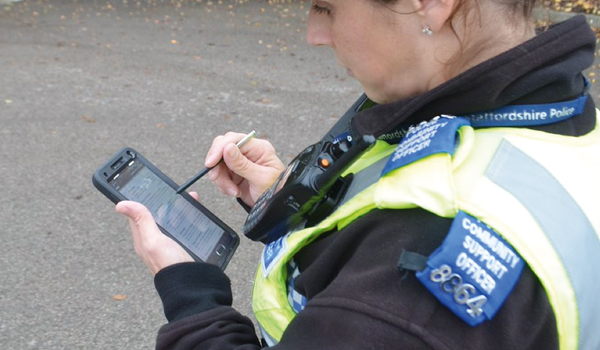Forces urged to embrace digital future
Police forces have been warned that significant improvements around digital skills and system interoperability are needed or they risk being overwhelmed by the increasing volume of digital evidence they are now having to deal with.
Police forces have been warned that significant improvements around digital skills and system interoperability are needed or they risk being overwhelmed by the increasing volume of digital evidence they are now having to deal with.
Every year we highlight how important it is for forces to embrace the challenges and opportunities presented by digital technology. It is now imperative that forces agree consistent standards on how they can share systems and data if they are to catch up with current technology and look to develop and evolve in the future, said Her Majestys Inspector of Constabulary Mike Cunningham.
The latest PEEL efficiency report by Her Majestys Inspectorate of Constabulary (HMIC) highlighted that supporting and developing staff to embrace digital technology was a priority.
Mr Cunningham, who led the inspection, said: There needs to be more focus on the future, on understanding new and different types of demand and on the skills that police forces will need to best deal with the new challenges, especially in growing areas such as cybercrime.
HMICs report, published on November 3, said that while almost all forces intend to make use of mobile technology, digital skills remain a significant gap.
It said police forces continue to struggle with the large number of different IT systems and, in particular, how they work together to share and search for data. Very few forces are focusing on developing the digital skills of their officers and staff, despite a universal acceptance that digital skills are becoming an increasingly important part of police work.
In more and more cases, police officers are required to gather evidence from digital devices said HMIC, but it found examples of this process taking weeks and even months because many forces did not have the necessary digital skills. It warned that these delays could allow criminals to continue offending, as well as being potentially distressing for the victims.
Enormous challenge
Industry representative body techUK says police are facing an enormous challenge when it comes to handling digital evidence, and the key to meeting this challenge successfully is forming fruitful and productive partnerships between policing, industry and academia.
Responding to the HMIC report, techUKs programme manager for justice and emergency services, Henry Rex, said: The nature of crime is changing, and changing fast. The exponential increase in digital and cybercrime means forces must urgently develop new skills and capabilities to tackle modern crime and identify perpetrators with speed.
It is critical police forces develop a robust plan for identifying and addressing skills gap within forces. The technology industry stands ready to work in partnership with the police to ensure they have the appropriate resources, capabilities and digital skills to implement such a plan to combat crime in this digital age.
We know this is a challenge not only common to the police, but across the public sector, as its grapples with reform and digital transformation. Industry,
government and law enforcement agencies must continue to work together to ensure we are able to best serve the public.
Research issued last week by Middlesex University London said child abusers, for example, were exploiting new technology and police officers lack of relevant knowledge to offend online.
Although more than four in ten UK officers investigate online child sexual abuse every month, almost half have not been trained to do so.
Report co-author Jeffrey DeMarco said the police were often on the back foot as technology rapidly changes, and by the time they had received training on one platform, another has been created.
Offenders are able to develop techniques and use evolving technology to commit crime with the knowledge that many police forces do not have the training and resources to be able to identify every possible way of offending online, he added.
National Police Chiefs Council (NPCC) lead for inspections, Chief Constable




